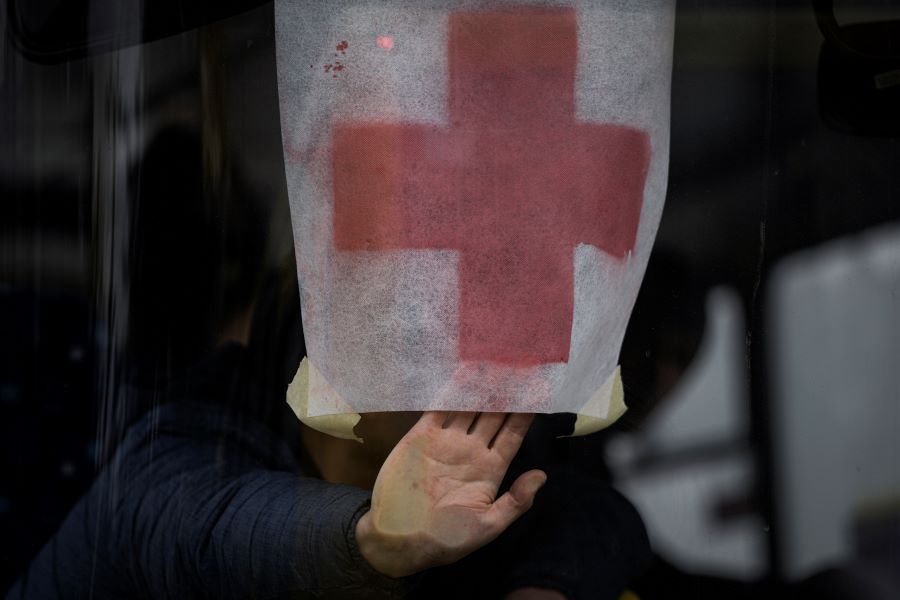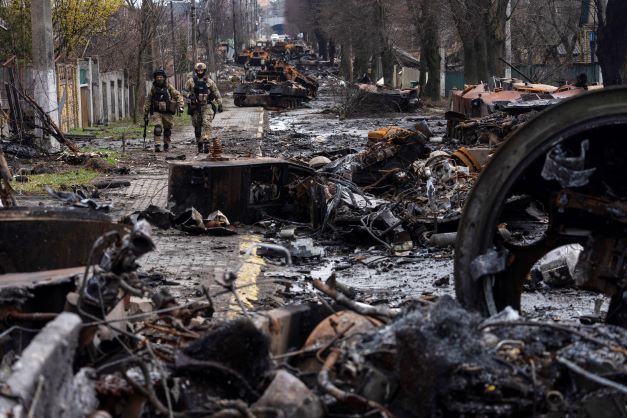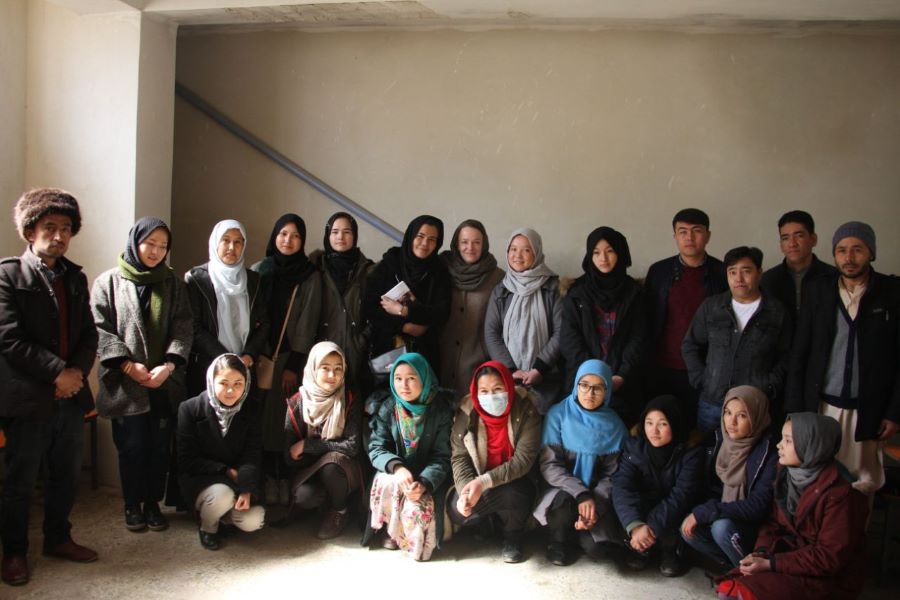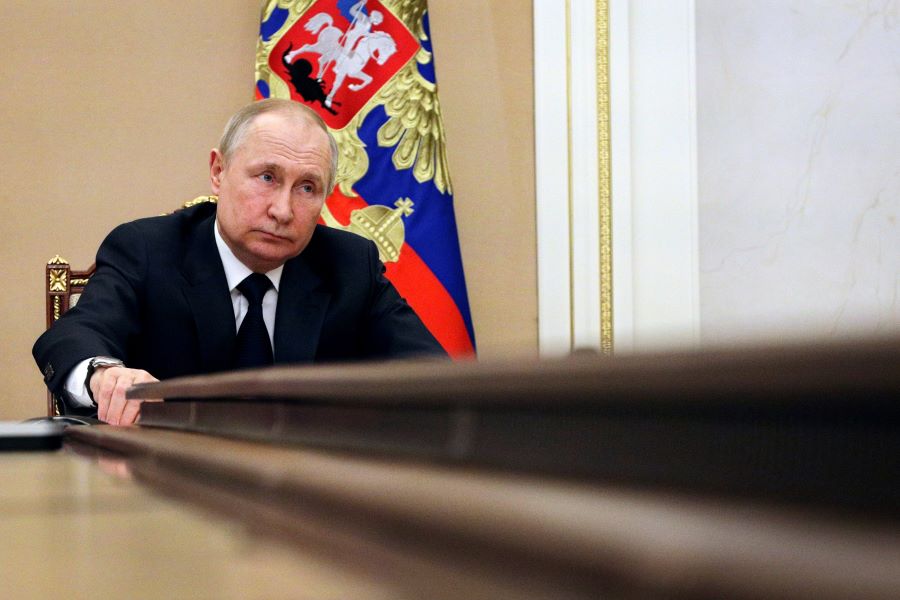
by Alan Wheatley | 3 May 2022 | Conflict, Economy, Globalization, Trade, Ukraine
Russia’s invasion of Ukraine is likely to prompt firms to re-examine supply chains and bring business closer to home, even if that means lower profits. Pipeline taps at a chemical plant near Cologne, Germany, 6 April 6, 2022. Germany relies heavily on imports of...

by Katharine Lake Berz and Daneese Rao | 28 Apr 2022 | Conflict, Educators' Catalog, Human Rights, Refugees, Ukraine, University of Toronto Journalism Fellows
For more than 150 years, the Red Cross has remained neutral in wars. Today, it still defends that stance against critics as Russia ravages Ukraine. A man presses paper with a red cross on it against the windshield of a bus as civilians are evacuated from Irpin, on the...
For many people, the war in Ukraine seems one of the latest litmus tests of ideological purity: One side is good, the other side bad. So it is with politics in many countries: One side is right, the other wrong. Nowadays it can be difficult, especially for youth, to understand why diplomats speak to all sides in an armed conflict, or why the Red Cross would remain neutral in Ukraine. In their story, Katharine Lake Berz and Daneese Rao, fellows at the University of Toronto, examine why the 159-year-old Red Cross, true to tradition, has refused to condemn Russia’s invasion so it can offer aid to victims on all sides of the conflict. It’s a valuable lesson for a world hungry for harmony.
Exercise: Have your students debate this resolution: “The Red Cross should condemn Russia over its invasion of Ukraine.”

by Tara Heidger | 21 Apr 2022 | Conflict, Ukraine
Logistics in war is hardly glamorous. But the first phase of Russia’s invasion of Ukraine exposed fateful failures in the attacker’s military support system. Ukrainian soldiers walk amid destroyed Russian tanks in Bucha, Ukraine, 3 April 2022. (AP...

by Jalal Nazari | 20 Apr 2022 | Asia, Conflict, Educators' Catalog, Islam, Terrorism, University of Toronto Journalism Fellows, Women's rights
The Taliban have barred girls from schools in Afghanistan. So some of them gather secretly in homes in Kabul, drawn together by a former teacher. Hassan Adib leads a discussion of “Memories of a translator” by Mohhamad Qazi in Kabul, April 2022. (Photo by...
The Taliban’s takeover of Afghanistan means millions of girls cannot attend school. Many young people outside of the country know this, but it is difficult for them to conceive just what this means for a young Afghan girl their age. In his story, Jalal Nazari, an Afghan now living in Canada where he is a Global Journalism Fellow at the University of Toronto Dalla Lana School of Public Health, takes us inside Kabul homes, where about 30 teenage girls meet secretly twice a month to improve their reading and writing skills. To hear the girls and their teacher speak adds a highly personal dimension to a conflict that for many young people remains distant and abstract. The courage they show in the face of Taliban strictures is a reminder to young people everywhere that education is a privilege not to be taken lightly.
Exercise: Ask your students to interview their parents, asking them why education is important, and then to write an essay quoting their parents and adding their own thoughts.

by Tom Heneghan | 19 Apr 2022 | Conflict, Ukraine
Russia’s invasion of Ukraine reflects Vladimir Putin’s unhinged state, some experts say. But his views of ‘Mother Russia’ provide a logical explanation. Russian President Vladimir Putin chairs a meeting with members of the government via...





